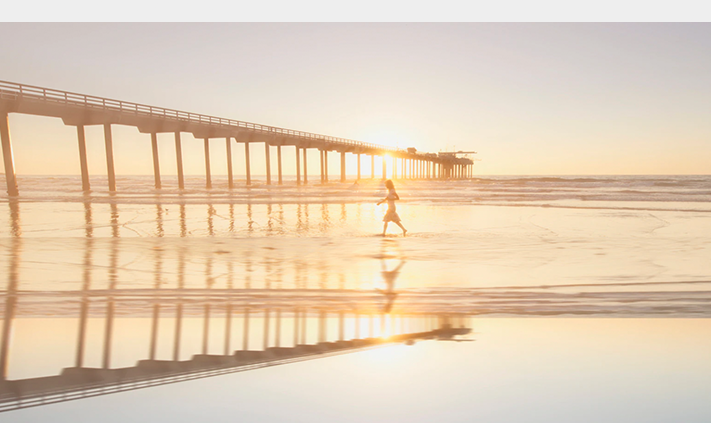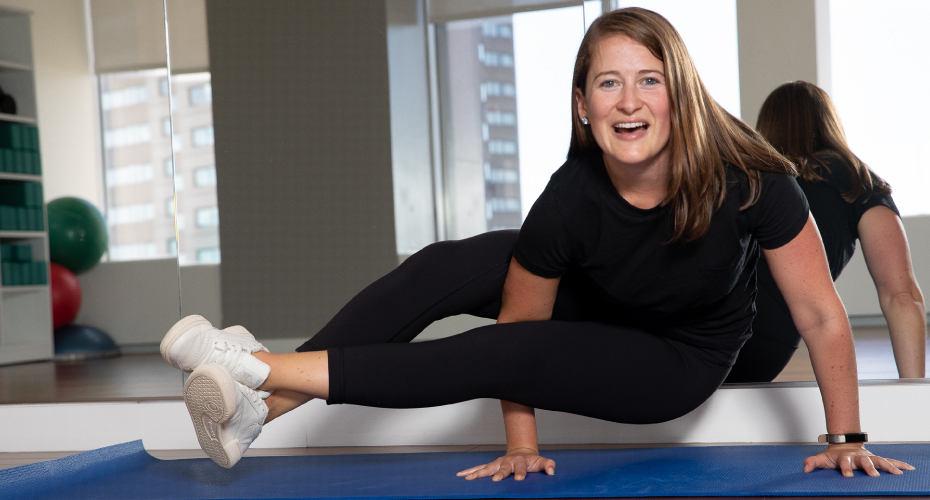Jan 7, 2020
This year, resolve to set intentions
As a yoga teacher, I encourage my students to set an intention at the beginning of every class. An intention is really just a guiding principle for their practice, such as finding peace or enjoying each moment.
As a health coach, I also encourage the people I work with to set intentions for the new year, instead of the more traditional approach of making New Year’s resolutions. After all, one widely cited study found more than 80% of resolutions are not kept over the long term.
Resolutions typically set tangible goals—such as losing 10 pounds or exercising three times per week. They have a concrete outcome attached and an implied judgment of “pass” or “fail.” I think of intentions, on the other hand, as values that are important to you and can guide your actions every day, such as being open to change or staying calm and focused.
Whereas resolutions are oriented toward the future, intentions help us stay in the moment.
I’ve seen resolutions overwhelm people I’ve worked with, and I’ve seen intentions help those same people be at peace in a busy world because they always know the direction they want to move in.
Psychologists have studied the effectiveness of setting intentions. And I’ve seen firsthand that intention setting is often an approachable, realistic and comfortable way to work toward what we want.
If you’ve never set intentions before, a good way to think about it is by asking yourself two simple questions: What do I want more of in my life this year? And what do I want less of? For example, you might say that you want more adventure, more time for yourself or stronger relationships with people who are important to you. On the flip side, you could say you want less self-doubt, less needless worry and less running around.
Here are some tips to help you set intentions

1. Take time to reflect
It’s important to take time to think about 2019, celebrate what went well, acknowledge what didn’t go as well as you’d hoped, and then set your intentions for 2020. If you weren’t able to make time to do this before the clock struck midnight on Dec. 31, don’t fret. Set aside time in January or whenever works for you. It’s not a race.
2. Start small
You can set as many intentions as you want, but starting small can be good because a long list can start to feel like a chore. Consider choosing one thing you’d like more of and one thing you’d like less of in 2020—and go from there.
3. Take action
Taking actions that complement our thoughts can be helpful in solidifying them. Consider writing down what you want more of and hanging the piece of paper where you can see it. The saying “Out of sight, out of mind” really applies. Similarly, consider writing down what you want less of, crumpling it up and throwing it away—this can be a powerful way of letting go of things that no longer serve you. Another practice I find helpful when I’m meditating, practicing yoga or simply taking a few deep breaths every day is to invite something I want more of in on an inhale and let go of something I want less of on an exhale. I’ve found that the more I integrate my intentions into my daily routine, the more useful they are.
4. It’s okay to change
Change is a normal part of life. We change and grow every day, and our intentions can, too. If you feel like an intention isn’t right for you anymore, or if it’s not working for you, cross it out and write a new one! It’s as easy as that. (Clinical studies have found giving up on unattainable goals can be important to emotional wellbeing too.)
5. Share your intentions with a friend
It can be helpful to share intentions with a close friend. In addition to helping us see if we are moving in the direction we want to, buddies can provide a built-in support system. Most important, close friends often notice the positive steps we are taking in our lives that we may overlook or take for granted. Friends can help us celebrate our wins in addition to figuring out ways we can change course.
What I love most about setting intentions is that you can’t actually fail at it! Even if things don’t go exactly the way you planned, you can keep heading in the direction that’s important to you and learn and grow along the way.
Did you find this article informative?
All Coverage content can be reprinted for free.
Read more here.
Nicole Ferraro was interviewed by Rachel Coppola for this column.
Nicole is a Blue Cross Blue Shield of Massachusetts health engagement strategist as well as a certified health and wellness coach and a registered yoga teacher. Have a question about wellness that you would like us to address in a column? Contact us here!
PHOTO OF NICOLE FERRARO BY MIKE GRIMMETT

